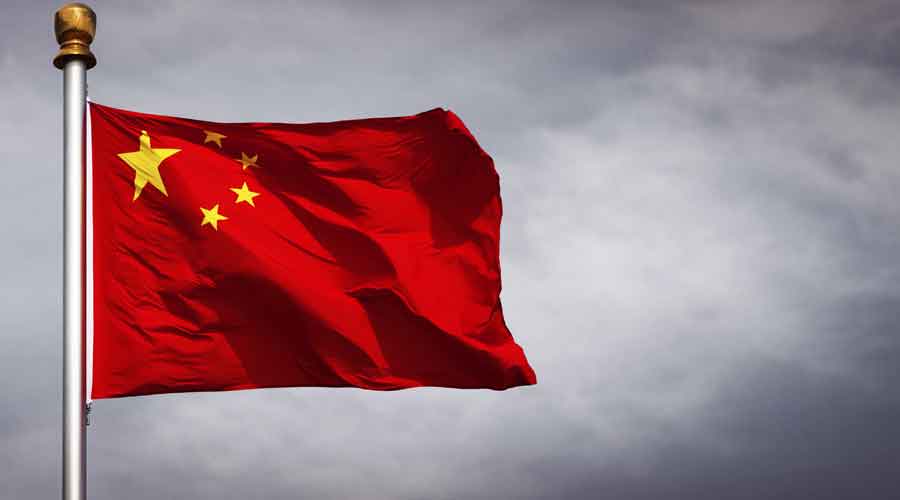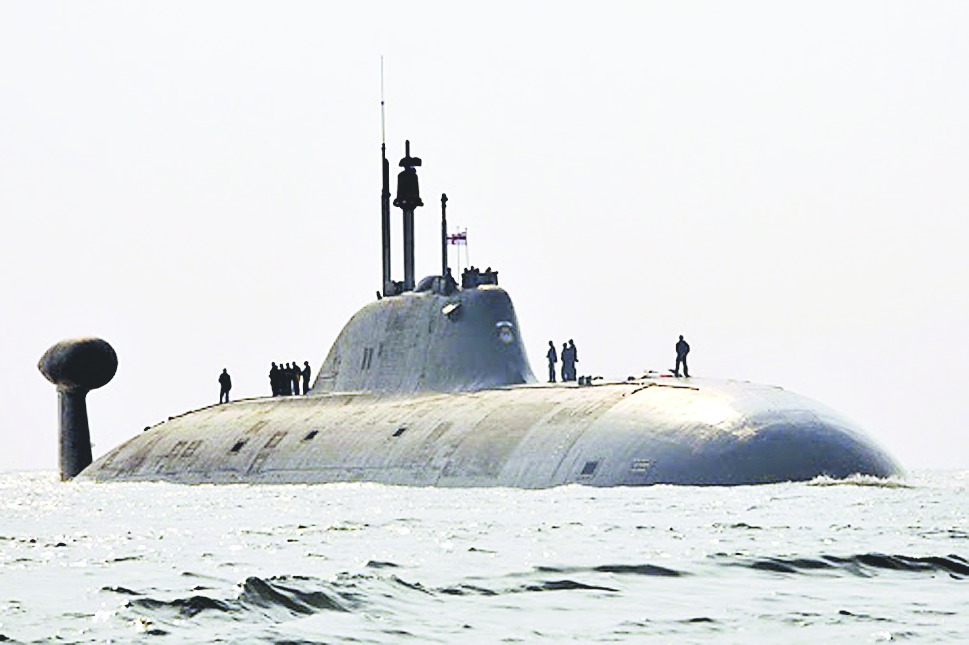China on Tuesday angrily denounced the nuclear-powered submarine deal announced by the US, UK and Australia, saying the pact violates the Non-Proliferation Treaty (NPT) and the three countries are travelling "further down the dangerous and wrong path."
The announcement was made at a summit meeting attended by US President Joe Biden, Australian Prime Minister Anthony Albanese and his British counterpart Rishi Sunak in San Diego on Monday. Under the agreement, Australia will first receive at least three nuclear-powered submarines from the US.
The submarine deal was part of the security pact between the three countries called AUKUS (Australia, UK, US) formed in 2021 aimed at countering China's aggressive behaviour in the strategic Indo-Pacific region which included its claim over most part of the disputed South China Sea.
China has been opposing the AUKUS alliance which helps Canberra to acquire the US nuclear submarines to boost its security in the face of increasing hostilities between the two countries. China says the bloc is aimed at containing its rise.
Announcing the deal, Biden said that with the support and approval of Congress, beginning in the early 2030s, the US will sell three Virginia-class submarines to Australia with the potential to sell up to two more if needed, jumpstarting their undersea capability to keep the Indo-Pacific region "free and open."
Reacting to the announcement, Chinese Foreign Ministry spokesman Wang Wenbin told a media briefing here that the three countries' efforts to advance cooperation on nuclear submarines and other cutting-edge military technology under the AUKUS pact were a typical Cold War mentality which will fuel an arms race, undermine the international non-proliferation regime and harm regional peace and stability.
"The three countries' latest joint statement shows that in pursuit of geopolitical selfish interests, they can disregard the international community's concerns and they are travelling further down the dangerous and wrong path," he said.
"Their cooperation concerns the transfer from nuclear weapons states to non-nuclear weapons states of large amounts of weapons-grade uranium," he said.
"It constitutes grave nuclear proliferation risks and violates the purposes and objectives of the NPT. They claim to adhere to the highest standard on nuclear non-proliferation that is just aimed to hoodwink the public," Wang said.
"In reality, they are coercing the IAEA (International Atomic Energy Agency) secretariat to make safeguard exemption arrangements which seriously harm the agency's authority. We are firmly against it," he said.
Nuclear submarine cooperation concerns the integrity and authority of the NPT and safeguards issues concern all the member states and therefore should be jointly discussed and decided through in a transparent, open and inclusive intergovernmental process, he said.
"Pending a consensus, the countries must not engage in nuclear submarine cooperation and the IAEA secretariat should not sign any safeguards arrangement with the three countries," Wang said.
Asia Pacific is the most vibrant and robust region of the world which should be cherished, he said.
"We urge the three countries to listen to the call of the international community and the regional countries, abandon the obsolete zero-sum mentality and narrow-minded geopolitical mindset, and fulfil their international obligations, refraining from undermining regional world peace and security," Wang said.
China is engaged in hotly contested territorial disputes in both the South China Sea and the East China Sea. China claims sovereignty over all of the South China Sea. Vietnam, Malaysia, the Philippines, Brunei and Taiwan have counterclaims.
Beijing has also built up and militarised many of the islands and reefs it controls in the region. Both areas are stated to be rich in minerals, oil and other natural resources and are also vital to global trade.
Except for the headline, this story has not been edited by The Telegraph Online staff and has been published from a syndicated feed.











